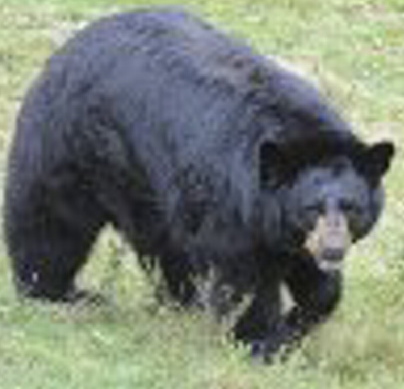AUGUSTA — This fall, Maine voters will have the opportunity to decide whether to ban the use of bait, hounds and traps to hunt bears.
As the government agency responsible for the conservation of Maine’s wildlife, the Department of Inland Fisheries and Wildlife is opposed to this referendum, and Maine’s game wardens and wildlife biologists are taking an active role in informing Mainers why we are opposed to this referendum.
Our nationally recognized bear management program is based on 40 years of scientific research and is led by two of the country’s most respected and experienced bear biologists.
Despite having one of the largest bear populations in the nation, at more than 30,000 bears, Maine experiences relatively few bear conflicts (about 500 a year). If this referendum passes, the bear population will grow faster, bears will expand into central and coastal Maine and conflicts will increase.
Although this referendum will eliminate the use of bait, hounds and traps, the three most effective methods to hunt bear in Maine, much of the attention has been placed on the use of bait to hunt bears in Maine.
On average, 80 percent of Maine’s bear harvest is taken by hunters using bait. However, even with bait, only one out of every four hunters is successful in harvesting a bear. Baiting allows hunters to be more selective in choosing a bear to harvest and to make an ethical shot, which is otherwise difficult in our dense forests.
Our biologists have conducted four decades of field research and have intensively monitored more than 3,000 individual bears. We monitor cub and yearling survival and weights, adult survival and health, age when females give birth and litter size, and the size and weight of all bears.
The research shows that natural foods drive the state’s bear population. Maine’s population is increasing because of several years of low hunter harvest and improving habitat that provides more natural foods.
Our studies show that in years of low natural food availability, bears enter their dens earlier, fewer cubs survive and yearling bears put on significantly less weight, although bait is still present on the landscape. Some bears even enter their dens during the baiting season because of the lack of natural foods.
Although many hunters use some combination of pastries, meat, grain or fruit at their bait sites, the total amount of bait that is placed in the woods each fall is only a small fraction of the food that bears require.
During the fall when it is legal to place baits, bears actively forage up to 20 hours a day and may consume more than 25,000 calories daily as they try to gain enough weight to survive several months of hibernation. While some individual bears may consume enough bait to improve their chances for survival, our research shows that the presence of bait does not have a significant impact on the state’s bear population as a whole.
Our department is often asked why we support the use of bait to hunt bears, but recommend that people avoid feeding wildlife. It is important for Maine voters to understand the realities of bear baiting, and how it differs from feeding wildlife near a home or campground.
Baiting and feeding wildlife are very different activities that have different effects on animals’ behavior.
Feeding is done in people’s backyards, in campgrounds or in other locations with a lot of human activity, and teaches bears to seek out people for food. This can cause property damage and public safety concerns.
Baiting, on the other hand, actually draws bears away from human activity and into the woods. In Maine, bait must be placed at least a quarter-mile from residences and campgrounds, and hunters go to great lengths to conceal their presence from bears. Bears that have a bold personality and are more likely to cause conflicts with people are more likely to visit the bait during daylight hours and be harvested by a hunter.
Our years of monitoring Maine’s bear population show that the carefully regulated use of bait by hunters may actually reduce the number of bear conflicts. In fact, Maine experiences fewer conflicts per bear than any of the eight Eastern states that do not allow bait to hunt bears.
The Maine Department of Inland Fisheries and Wildlife and Maine’s bear biologists and game wardens are opposed to Question 1 because the traditional hunting methods that would be banned by this referendum are the only effective tools available to control the state’s large bear population. We urge Maine voters to consider all the facts when casting their vote this fall.
— Special to the Telegram
Send questions/comments to the editors.



Success. Please wait for the page to reload. If the page does not reload within 5 seconds, please refresh the page.
Enter your email and password to access comments.
Hi, to comment on stories you must . This profile is in addition to your subscription and website login.
Already have a commenting profile? .
Invalid username/password.
Please check your email to confirm and complete your registration.
Only subscribers are eligible to post comments. Please subscribe or login first for digital access. Here’s why.
Use the form below to reset your password. When you've submitted your account email, we will send an email with a reset code.